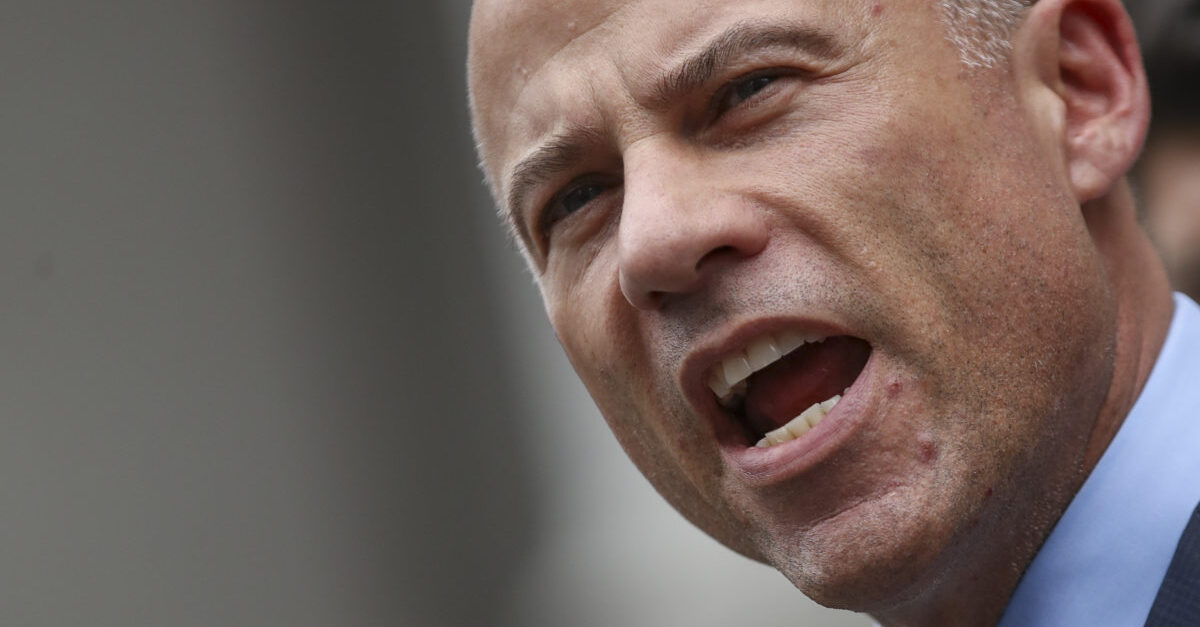
Less than a week after Michael Avenatti’s convictions for defrauding his ex-client Stormy Daniels, a federal judge found that the “overwhelming evidence” of his guilt in a scheme to extort Nike means he shouldn’t get a new trial.
In July, U.S. District Judge Paul Gardephe sentenced Avenatti to two and a half years in prison for what he described as an “outrageous” scheme to extort Nike of up to $25 million.
“He hijacked his client’s claims, and he used those claims to further his own agenda,” Gardephe said at the time.
In 2019, Avenatti represented amateur youth basketball coach Gary Franklin, whose teams had previously been sponsored by Nike. After the company dropped its sponsorship of his teams, Frank blamed two allegedly corrupt Nike employees and sought Avenatti’s assistance regaining it.
Instead, Franklin said, Avenatti exploited his client’s case for his own purposes. Avenatti threatened to expose a corruption scandal of improper payments to amateur youth basketball players if Nike didn’t pay him and his colleague Mark Geragos between $15 and $25 million to perform an internal investigation.
Nearly two years ago on Feb. 14, 2020, a jury found Avenatti guilty of transmitting interstate communications with intent to extort, Hobbs Act extortion, and honest services wire fraud, in what would become the first time the once-prominent lawyer would become a federal convict.
Avenatti teared up as he philosophized about his fall a little more than a year later.
“I lost my way. I betrayed my values, my friends, my family and then, myself. I became driven by the things that don’t matter in life,” Avenatti said, later renouncing the mediums that turned him into an anti-Trump star of an earlier era.
“TV and Twitter, your honor, mean nothing,” he declared last year.
Though a heavy blow, it would not be Avenatti’s last. He had two then-pending prosecutions. The next would end in a mistrial in the Central District of California, and the last—the Daniels case—would later play out in the Southern District of New York, the same jurisdiction as the Nike case.
As the COVID-19 pandemic raged, Avenatti won a reprieve from prison until the conclusion of the Daniels case. He reported to federal authorities on Monday, and federal records show that he is currently a prisoner of the Metropolitan Detention Center in Los Angeles.
That same week, Avenatti was dealt another setback. Judge Gardephe would reject Avenatti’s argument that he should get a new trial because federal prosecutors did not turn over exculpatory evidence: financial records by accountant Robert Drum. It was the same contention that got Avenatti a mistrial in California.
Gardephe, a George W. Bush appointee, saw no reason to follow in his California counterpart’s footsteps, finding the so-called “Drum documents” disclosed by prosecutors there “irrelevant.”
“The Drum Documents are not relevant to the charges in the instant case, much less exculpatory,” the 23-page ruling states. “The Drum Documents as the headings set forth above indicate – address the 2009 to 2018 time period. Avenatti’s criminal conduct in the instant case took place in March 2019.”
The judge noted that Avenatti had $11 million in judgments against him and his firm during the relevant time period.
Judge Gardephe also found the Drum documents would not have changed the trial’s outcome “given the overwhelming evidence of Avenatti’s guilt.”
Since Avenatti is appealing his convictions in both the Nike and Stormy Daniels cases, he’d asked Gardephe to issue an “indicative” ruling for a new trial. That means the ruling has little practical effect because the district court had no power to issue relief while the appeal remained pending, but it signals that such a request would have been denied if he had that authority.
Read the ruling, below:
[Photo by Drew Angerer/Getty Images.]